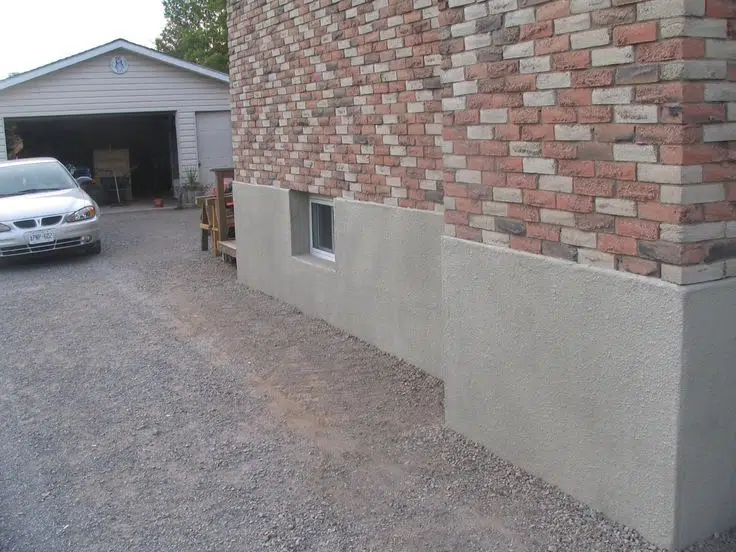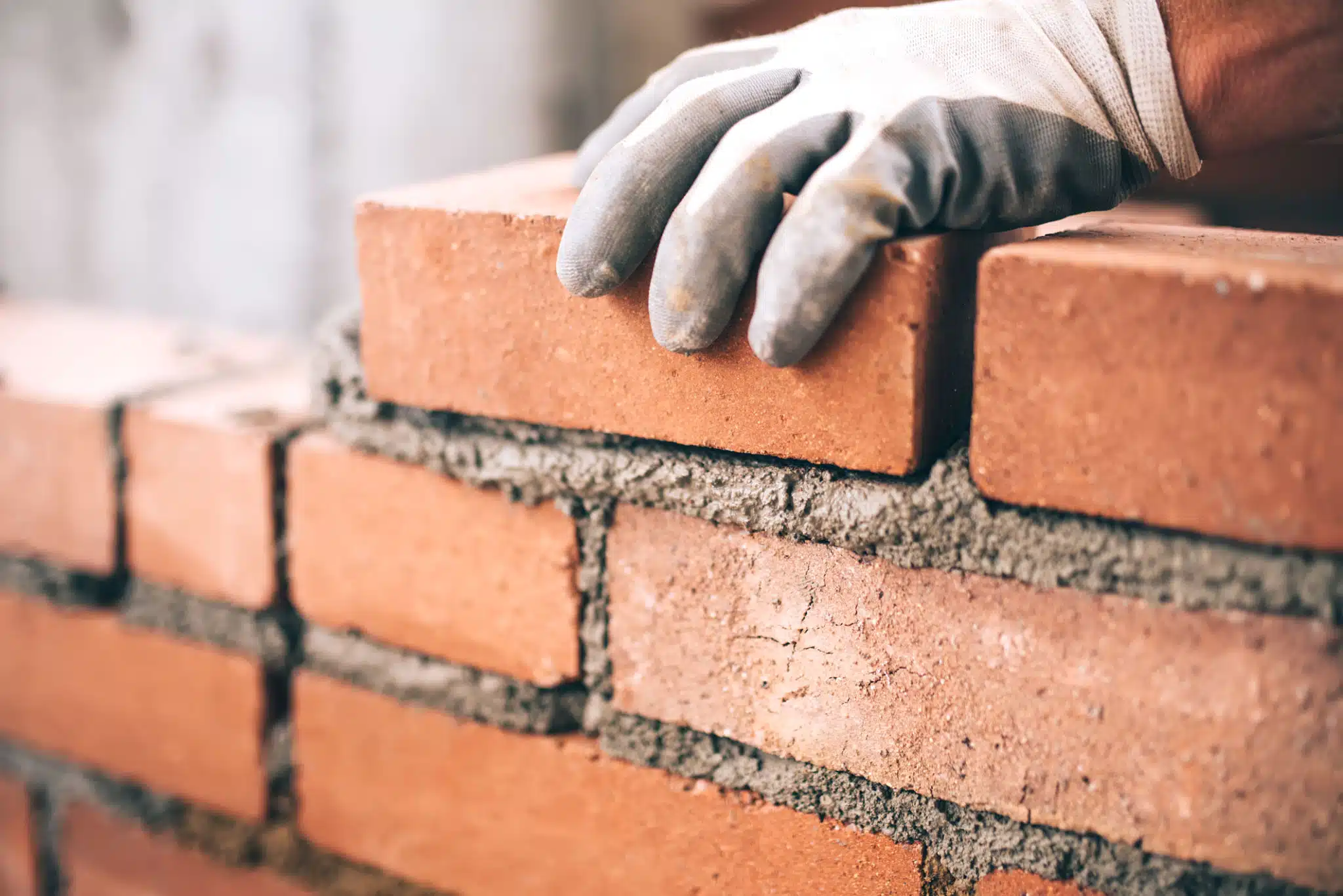Your garage is more than just a place to park your car or store your belongings. It’s an integral part of your home’s structure and contributes significantly to your property’s overall value and appearance. When it comes to brick garages, many homeowners underestimate the importance of maintaining their brickwork. In this comprehensive guide, we’ll explore the potential consequences of neglecting brick damage and why timely repairs are crucial for your home’s safety, functionality, and value.
1. Compromised Structural Integrity
One of the most serious consequences of ignoring damaged brick on your garage is the potential compromise to its structural integrity. Brick is a durable material, but it’s not invincible. Over time, various factors can lead to deterioration:
- Weather exposure (freeze-thaw cycles, moisture penetration)
- Ground settling
- Poor initial construction
- Impact damage
When bricks become damaged, cracked, or start to deteriorate, the entire structure can be at risk. Here’s how:
Weakened Wall Support
Damaged bricks can’t provide the same level of support as intact ones. This weakening can lead to uneven weight distribution, putting stress on other parts of the structure. In severe cases, this can result in:
- Wall bulging or bowing
- Cracks in the mortar joints
- Separation of bricks from mortar
Moisture Infiltration
Cracks or gaps in brickwork allow moisture to penetrate the structure. This can lead to a host of problems, including:
- Mold and mildew growth
- Rotting of wooden structural elements
- Efflorescence (white, powdery deposits on brick surfaces)
- Further brick deterioration due to freeze-thaw cycles
Left unchecked, these issues can escalate, potentially leading to partial or complete collapse of the garage structure.
2. Increased Repair Costs Over Time
The old adage “a stitch in time saves nine” is particularly applicable when it comes to brick repair. What might start as a small crack or a few loose bricks can quickly escalate into a major structural problem if left unaddressed. Here’s how ignoring brick damage can hit your wallet hard:
Escalating Damage
Small issues tend to grow over time. For example:
- A minor crack can widen, allowing more moisture to penetrate
- Loose bricks can fall out, creating larger gaps in the wall
- Moisture infiltration can lead to internal damage not visible from the outside
As these problems worsen, the scope of necessary repairs increases, along with the associated costs.
More Extensive Repairs
What might have been a simple tuckpointing job or replacement of a few bricks can turn into a major reconstruction project. This can involve:
- Rebuilding entire sections of walls
- Replacing damaged internal structures (wooden beams, drywall, insulation)
- Addressing foundation issues caused by prolonged water damage
These more extensive repairs not only cost more in terms of materials but also require more labor, significantly increasing the overall expense.
Emergency Repairs
Ignoring brick damage can lead to sudden, catastrophic failures that require immediate attention. Emergency repairs often come with premium pricing due to:
- After-hours or weekend work
- Rushed material procurement
- The need for temporary structural support
By addressing brick damage early, you can plan repairs on your schedule and budget, avoiding these costly emergency situations.
3. Potential Safety Hazards for Family and Property
Beyond the structural and financial implications, damaged brick on your garage can pose serious safety risks to your family and property. These hazards shouldn’t be underestimated:
Falling Debris
As bricks deteriorate, they can become loose and fall. This poses a direct risk of injury to anyone near the garage. Consider the potential dangers:
- Children playing near the garage walls
- People entering or exiting the garage
- Pets in the vicinity of the structure
Even small pieces of falling brick or mortar can cause significant injury.
Collapsing Structures
In extreme cases, severely damaged brick walls can collapse. This risk is particularly high during:
- Severe weather events (high winds, heavy snow loads)
- Earthquakes or ground tremors
- Impact from vehicles
A collapsing garage wall can cause devastating damage to vehicles, stored items, and potentially to adjacent parts of your home.
Fire Hazards
While brick itself is fire-resistant, damaged brickwork can compromise this safety feature. Cracks and gaps can allow fire to spread more easily, potentially:
- Providing oxygen to fuel a fire
- Creating pathways for fire to reach wooden structural elements
- Reducing the overall fire resistance of the garage structure
This is particularly concerning if you store flammable materials in your garage, such as gasoline, paint, or cleaning products.
4. Impact on Home Value and Curb Appeal
Your garage contributes significantly to your home’s overall appearance and value. Damaged brickwork can have a substantial negative impact:
Reduced Curb Appeal
First impressions matter, especially in real estate. Visible brick damage on your garage can:
- Make your entire property look neglected
- Create an impression of poor maintenance
- Detract from other attractive features of your home
This can be particularly problematic if you’re considering selling your home in the near future.
Lower Property Valuation
When it comes to home appraisals and property valuations, the condition of all structures on your property matters. Damaged brick on your garage can lead to:
- Lower appraisal values
- Reduced offers from potential buyers
- Longer time on the market if selling
In some cases, visible brick damage might even deter potential buyers from considering your property at all.
Neighborhood Impact
Your home doesn’t exist in isolation. The condition of your property can affect the perceived value of neighboring homes as well. By maintaining your garage’s brickwork, you’re not only protecting your own investment but also contributing to the overall appeal and value of your neighborhood.
5. Long-term Effects on Garage Functionality
Beyond the immediate structural and safety concerns, damaged brick can significantly impact the long-term functionality of your garage:
Climate Control Issues
Cracks and gaps in brickwork can compromise your garage’s ability to maintain a stable internal environment. This can lead to:
- Increased energy costs for heating or cooling
- Difficulty in maintaining appropriate humidity levels
- Potential damage to stored items due to temperature fluctuations
Security Concerns
Damaged brickwork can weaken your garage’s overall security. Potential issues include:
- Easier access points for intruders
- Compromised mounting points for security devices (cameras, alarms)
- Reduced effectiveness of garage doors due to misalignment
Reduced Storage Capacity
As brick damage worsens, it can affect your ability to fully utilize your garage space:
- Wall-mounted storage systems may become unsafe
- Floor space near damaged walls might need to be left clear
- Concerns about falling debris might limit overhead storage options
Conclusion: The Importance of Timely Brick Repair
Ignoring damaged brick on your garage is a risk not worth taking. The potential consequences range from costly repairs and safety hazards to reduced property value and compromised functionality. By addressing brick damage promptly, you can:
- Maintain the structural integrity of your garage
- Ensure the safety of your family and property
- Protect your home’s value and curb appeal
- Preserve the full functionality of your garage space
- Avoid escalating repair costs
Regular inspections and timely repairs are key to preventing minor brick issues from becoming major problems. If you notice any signs of brick damage on your garage – cracks, loose bricks, or deteriorating mortar – don’t wait. Consult with a professional brick repair service to assess the situation and recommend appropriate repairs.
Remember, your garage is an important part of your home. By taking care of its brickwork, you’re investing in the long-term value, safety, and functionality of your entire property. Don’t let hidden dangers lurk behind damaged bricks – take action today to protect your home for years to come.
\n\n\nWhy is it important to maintain the brickwork of my garage?
Maintaining the brickwork of your garage is crucial to prevent compromised structural integrity, increased repair costs, safety hazards, and reduced property value.
What can happen if I ignore damaged brick on my garage?
Ignoring damaged brick can lead to a range of issues including structural weakening, moisture infiltration, escalating repair costs, and safety risks such as falling debris or collapsing walls.
How does damaged brick affect my garage’s structural integrity?
Damaged brick can weaken wall support, lead to uneven weight distribution, and cause severe problems like wall bulging, cracks in mortar, and the separation of bricks from mortar.
What are the financial implications of neglecting brick repairs?
Neglecting brick repairs can result in escalating damage, more extensive and costly repairs, and potential emergency situations that come with premium pricing due to their urgency.
What safety hazards are associated with damaged brick garages?
Damaged bricks pose safety hazards such as falling debris, the risk of structural collapse, and increased fire hazards if gaps allow fire to spread more easily.
How does brick damage impact my home’s value?
Brick damage can lower curb appeal, reduce property valuation during appraisals, and even deter potential buyers, affecting the overall marketability of your home.
What long-term functionality issues can arise from damaged brickwork?
Damaged brick can lead to climate control issues, compromised security, and reduced storage capacity in your garage, making it less functional and valuable over time.
What should I do if I notice signs of brick damage on my garage?
If you notice cracks, loose bricks, or deteriorating mortar, it’s important to consult with a professional brick repair service to assess the damage and recommend repairs.
How can regular inspections help prevent serious brick issues?
Regular inspections can help identify minor brick issues early, allowing for timely repairs that prevent these problems from escalating into major structural concerns and costly fixes.



